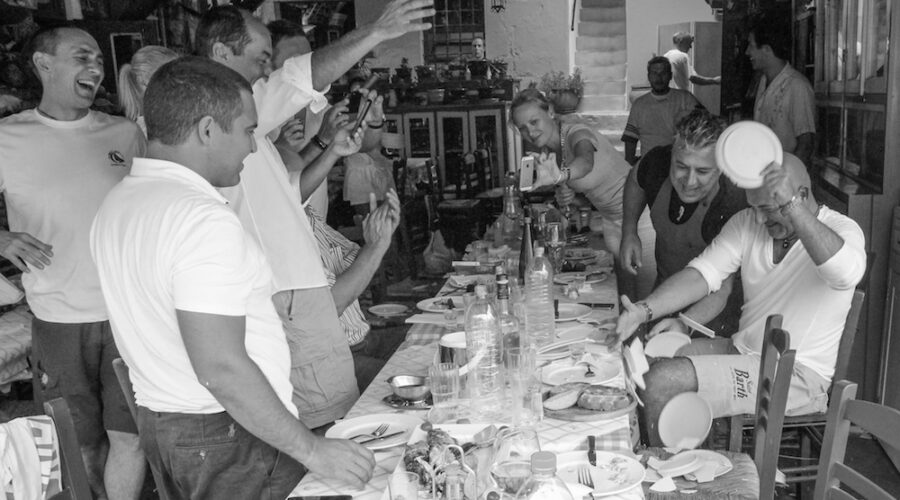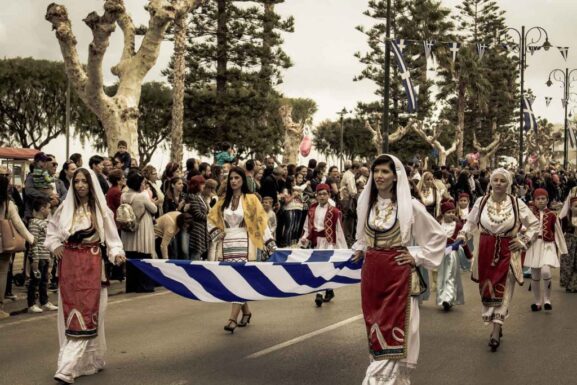Greek Name Days: A Celebration of Community, Tradition, and Timeless Joy
Greek Name Days: A Timeless Tradition of Celebration
Who has Name day today:
For Greeks, name days are a tradition as deeply rooted as the olive trees that line their coasts, a celebration even more important than birthdays for many. This charming custom, tied to the Greek Orthodox Church calendar, is based on the feast days of saints after whom people are named. If you’ve ever been to Greece, you may have heard locals mention, “Χρόνια Πολλά!” or “Many happy returns!” to friends and family—not because it’s their birthday, but because it’s their name day.
So, what makes Today’s Greek Nameday. so special, and how are they celebrated? Let’s take a closer look at this enduring, joyful tradition.
The Significance of Name Days
In Greek culture, names hold tremendous importance. Many names are derived from saints, and because each saint has a day of the year dedicated to them, anyone named after a saint will celebrate on that day. For instance, people named George celebrate on Saint George’s Day, often observed on April 23rd, and those named Maria, after the Virgin Mary, celebrate on August 15th. Unlike birthdays, which are personal, name days are communal; it’s common for anyone who shares a name to celebrate on the same day, creating a unique sense of connection.
Greek name days have historical roots in the country’s deep Christian heritage, and the tradition has been passed down through generations. For many Greeks, celebrating a name day is as integral to their identity as family and religion, highlighting the interwoven fabric of faith, tradition, and community.
How Greeks Celebrate Name Days
Unlike birthdays, where the celebrant is often the focus of gift-giving and surprise parties, Greek name days take on a more open-house style of celebration. Friends, family, neighbors, and even acquaintances may drop by unannounced, bearing small gifts or flowers. There’s no need for formal invitations, and there’s an open-door policy—so expect a steady flow of guests throughout the day.
Here’s how you might find Greeks celebrating name days:
- Hospitality and Food: Celebrants open their homes and treat visitors to a spread of delicious homemade foods and drinks. It’s common to find tables brimming with mezedes (small dishes), traditional sweets like baklava or kourabiedes (almond cookies dusted with powdered sugar), and wine or ouzo. In some families, food is kept light and festive, while others may serve full meals.
- Gifts and Kind Words: Visitors bring simple, meaningful gifts—flowers, sweets, or small religious icons—although there’s no expectation for extravagant presents. It’s the gesture that counts. Everyone greets the celebrant with “Χρόνια Πολλά!” or “Να ζήσεις” (May you live long), and it’s customary for the celebrant to respond with thanks and sometimes small tokens of gratitude.
- Church Attendance: Since name days are rooted in religious tradition, many celebrants attend church services to honor the saint they were named after. Attending mass or lighting a candle is seen as an act of reverence, grounding the celebration in the spiritual essence of the occasion.
- Community Events and Gatherings: In villages and smaller communities, name day celebrations can turn into communal gatherings. It’s not uncommon for restaurants, tavernas, or public squares to fill with people celebrating their name day, sometimes with live music, dancing, and laughter that spills into the streets.
Why Name Days Matter So Much to Greeks
There’s something uniquely Greek about the way name days create bonds. Name days are not just personal; they’re part of the cultural identity. By celebrating their name day, Greeks reaffirm a sense of unity and belonging within their families and communities. Furthermore, it allows friends and relatives to come together in a way that birthdays sometimes don’t. Even in the busiest of times, Greeks make it a priority to celebrate their loved ones on their name day.
This tradition also highlights the distinct Greek style of hospitality. When a Greek person opens their home on their name day, it’s an invitation to share in their joy. To visit someone on their name day is not just polite—it’s almost an obligation, a sign of respect and love.
Name Days in Modern Times
In contemporary Greece, where life is often busy, the tradition of name days remains strong. Families may not be able to keep an open house all day, but even in cities, people find ways to celebrate. It’s still common for workplaces to join in, with colleagues sharing sweets or offering flowers. Social media has also added a new twist to the tradition, with celebrants receiving a flood of name day wishes online—a modern-day equivalent of the in-person greetings of old.
Even young people, who might otherwise lean toward modern celebrations, hold name days dear. It’s a beautiful testament to how enduring Greek traditions are, persisting even as the world changes.
Visiting Greece? Experience a Name Day Celebration!
If you’re visiting Greece and happen upon a name day celebration, consider yourself lucky! You’ll experience Greek hospitality at its finest, with people welcoming you into their homes, sharing their food, and treating you like family. Joining a name day celebration is an unforgettable way to experience the warmth and spirit of Greek culture.
A Tradition of Connection and Community
Greek name days remind us that celebration is a communal act. They bring people together, allowing each generation to feel connected to those who came before. In a world that often feels fragmented, Greek name days are a precious tradition of unity, joy, and shared identity.
So, next time you hear someone say, “Χρόνια Πολλά!” in Greece, you’ll know that they’re not just wishing someone a happy day—they’re celebrating the beautiful, timeless tradition of Greek name days.



